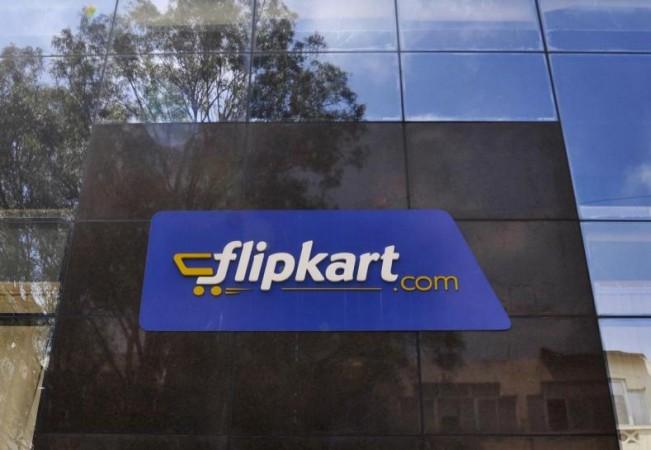
Walmart Inc made its biggest ever investment in a foreign market to wrest a 77 percent stake in Indian e-commerce giant Flipkart, thereby taking its battle with Amazon to the world's most populous market. Walmart coughed up $16 billion as it bought out large shareholders in the pioneering Indian e-commerce start-up as it sought to take global rival Amazon head-on in India.
Walmart has finally made sure its tottering India bid has now landed on a strong wicket. For 11 years its bid to enter the most popular market in the world had been lurching from one problem to the other. But now, will Walmart meet its own goals? Will the deal be seen as a success ten years on? Is this the best deal the Indian market could have got? What does the Walmart-Flipkart deal mean for Narendra Modi-led BJP government? And finally, will Flipkart remain an Indian company, or will it rather become Walkart?
There are other questions as well, from a consumer/trader point of view. Will the $500 billion American behemoth take the Indian consumers to a shopping Eldorado with ultra-cheap prices? Will it, in so doing, kill off smaller rivals? And, how will the deal impact the existing sellers on Flipkart?
Walmart explains away the Flipkart deal as one that would help it transition from the brick-and-mortar retailer on a global scale. In the last ten years Walmart had been unsuccessfully trying to gain a foothold in the India market thanks to the restrictive government policies regarding foreign investment in multi-brand retail. The Flipkart deal offered a solution to all these problems. Or Walmart thinks so.
The US retail giant's resolve to acquire Flipkart thus turned into a battle of honour, with Amazon aggressively trying to stave off the Walmart push with an offer to buy 60 percent in the company. Amazon's move was backed up by iconic Japanese investment fund Softbank, one of the key investors in Flipkart. On the other side, the Walmart bid was boosted by early investor Tiger Global.
The tussle between the investment groups to row the Indian giant to different shores also spelled a so-called executive level disaster in the Indian company. Co-founder Sachin Bansal, backed by Softbank, had wanted to take the company to the Amazon stable, but when he was overruled in the board, he found his continuation in the merged entity untenable.
The back-end story goes that Tiger Global had strategically pulled the strings since 2016 to drive the company's future the way it thought was best. The appointment of Kalyan Krishnamurthy, a close associate of Tiger's representative on Flipkart board, as CEO in 2016 was a strategic move. In the end, co-founder Binny Bansal and Krishnamurthy, who supported a deal with Walmart, are executive chairman and CEO respectively, while Sachin has opted to sell his 5.5 percent stake for nearly $1 billion and exit the company.
"Sadly my work here is done and after 10 years, it's time to hand over the baton and move on from Flipkart," Sachin wrote in a Facebook post. "I'll be taking some long time off and focus on finishing a few personal projects which I haven't been able to find time for. Will catch up on gaming (and see what kids are playing these days) and brush up on my coding skills.
What Sachin does next will be keenly looked at. It will be watched if Sachin will achieve his dream of creating the first $100 billion Indian start-up. The Walmart deal vlued the 11Flipkart at $ 20.8 billion. There are analysts who think the hype about the Walmart-Flipkart deal is misplaced.
"I cannot believe that India's largest ecommerce company is being sold for $16 billion. That seems a little low for me. Amazon is making inroads. But I think it should have been a larger story," Shivakumar Ganesan, CEO of Exotel, said, according to the Economic Times.
On one side, the arrival of the most potent retailer from the first-world means the Indian consumers will be treated to ultra-low prices, steep discounts and other winning offers. On the other, the sellers, smaller rivals and other elements in the sprawling logistics chain are understandably nervous.
Jittery sellers
Online sellers on Flipkart are jittery because Walmart can wipe them off. Walmart, a $500 billion American behemoth, has a reputation of killing small businesses with ultra-low prices. Indian traders fear that Walmart could introduce its own private labels via Flipkart and thereby hurt them badly, the Times of India reported.
"These products would be brought in at hyper-competitive prices, which will cannibalise the market and make it difficult for other sellers to operate. We are studying the situation and will take appropriate action, including the legal route, if necessary," a spokesperson of the All India Online Vendors' Association (AIOVA), told the ToI.
However, Walmart has tried to allay fears saying that its India move is backed up with a plan to boost small businesses and the 'Make in India' campaign.
At the same time, the Walmart-Flipkart deal, the biggest in the e-commerce segment, leaves the central government in a quirky position. It can't savour the moment of big buck foreign investment, fearing a backlash from a key support base, the trading community. There were media reports that the Walmart CEO's efforts to have an audience with the bigwigs in the central government were met with a cold response. Obviously, the government doesn't want to be seen cozying up to a 'global predator' that will destroy small businesses and eat up jobs.








